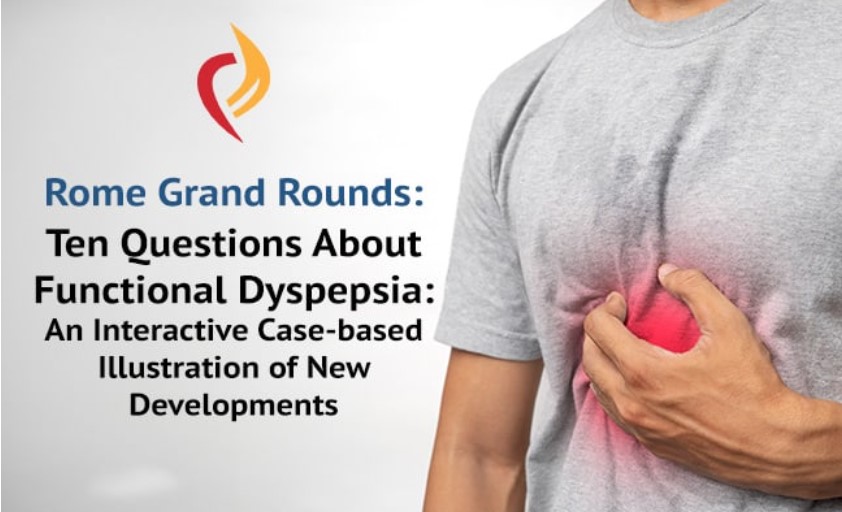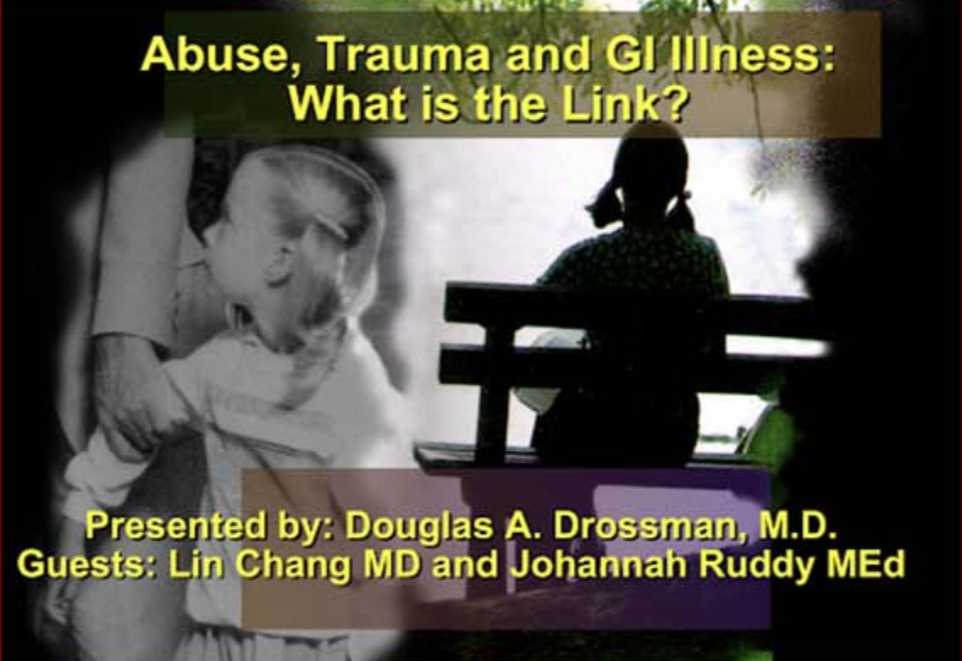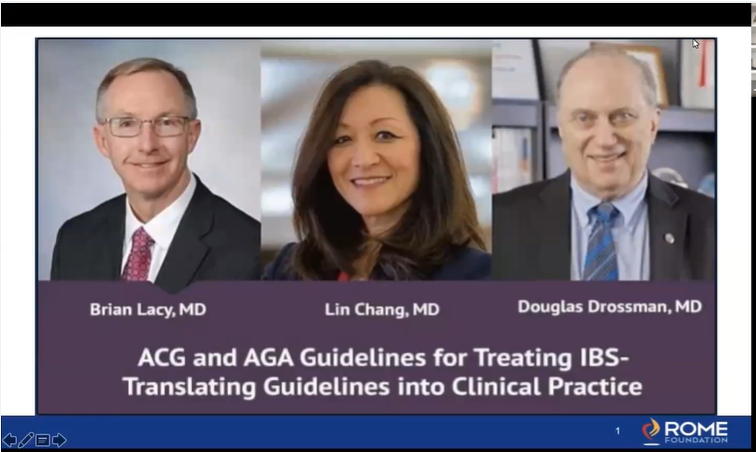 Rome Campus
Rome Campus
10 Courses
Complimentary Courses
Highlights of Lead Papers from the Rome Foundation Global Epidemiology Study copy 1
A Rome Foundation Continuing Medical Education program
The groundbreaking Rome Foundation Global Epidemiology Study (RFGES) has now published over 40 papers with many others in preparation.
It serves as the reference paper for practice and research on the Disorders of Gut-Brain Interactions (DGBI) and its initial paper “Worldwide Prevalence and Burden of Functional Gastrointestinal Disorders, Results of Rome Foundation Global Study” is now approaching 1,000 citations, making it the leading reference in the field.
In this session of the Rome Foundation Grand Rounds, we will present an introduction to the RFGES and its methodology and highlight three of its leading papers:
-Greater Overlap of Rome IV Disorders of Gut-Brain Interactions Leads to Increased Disease Severity and Poorer Quality of Life. Presenter, Ami Sperber
-Novel Irritable Bowel Syndrome Subgroups are Reproducible in the Global Adult Population. Presenter, Chris Black
-Symptom profiles compatible with disorders of gut-brain interaction (DGBI) in organic gastrointestinal diseases: A global population-based study. Presenter, Tom van Gils
Presented by:
Ami Sperber, MD, MSPH, RFF
Olafur Palsson, PsyD
Chris Black, PhD, MRCP
Tom van Gils, MD PhD

Complimentary Courses
GastroPsych Clinical Case Conference Series
A Rome Foundation Continuing Medical Education program
Patients with a wide range of gastrointestinal conditions, including functional bowel disorders, gastroparesis, chronic pancreatitis, esophageal conditions, and inflammatory bowel disease may experience brain-gut dysregulation that can impact their symptoms and/or disease experience. In an engaging and practical case series, leading experts in psychogastroenterology will discuss how to utilize psychological interventions with complex and unique GI presentations. Click on the specific session link below to register for that session.
Session One: Psychological Care for Adults with Chronic Pancreatitis
Session Two: Behavioral Treatment for Sleep Disturbance in DGBIs
Session Three: Psychological Intervention with Adolescent/Young Adult Patients with DGBIs
Session Four: Behavioral Medicine Interventions for Eosinophilic Esophagitis
Session Five: Psychological Treatment Strategies for Cyclic Vomiting Syndrome
Session Six: Case Conceptualization and Cognitive-Behavioral Treatment for Avoidant Restrictive Food Intake Disorder
Session Seven: Acceptance and Commitment Therapy with a patient with Inflammatory Bowel Disease and an Ostomy
Session Eight: GI illness and Sexual Dysfunction
CE Credits: 1 hour of continuing education credit for Licensed Psychologists will be awarded for each seminar. There is no cost to attend. Attendees must complete each seminar's associated evaluation form in order to receive credit.
Complimentary Courses
GastroPsych - Integrating Group Therapy into GI Behavioral Health Practice
A Rome Foundation Continuing Medical Education program
- Describe the empirical data supporting group treatment for GI symptoms
- List two logistical components of integrating groups into practice.
- Identify two benefits of offering group treatment for GI patients.
- Explain two clinical challenges that might arise in providing group treatment for GI patients, and how to address each.

Complimentary Courses
Grand Rounds 2024 - Low FODMAP Diet Dilemmas: A Case-based Approach
This symposium will use a case-based approach to provide answers to questions that commonly arise about the low FODMAP diet when used for patients with IBS:
|
Presented by:
William D. Chey, MD, AGAF, FACG, FACP, RFF
Marvin Pollard, Professor of Gastroenterology, Professor of Nutrition Sciences
Chief, Division of Gastroenterology & Hepatology
Michigan Medicine, Ann Arbor, MI, USA
Nancee B. Jaffe, MS, RDN
Lead Dietitian for the UCLA Vatche and Tamar Manoukian Division of Digestive Diseases

Complimentary Courses
Grand Rounds: The 3 step approach to Integrated Psychosocial Care in DGB
Objectives for this Grand Rounds include:
|
Presented by:
Laurie Keefer, PhD, RFF
Professor of Medicine and Psychiatry
Icahn School of Medicine at Mount Sinai
New York, NY, USA

Complimentary Courses
Grand Rounds: Abdominal Bloating and Distension
This Rome Foundation Grand Rounds presentation will appeal to individuals interested in evaluating and treating one of the most prevalent cluster of gastrointestinal symptoms – gas and bloating. These symptoms develop for a variety of different reasons. They are reported by a large number of patients with disorders of gut-brain interaction, such as irritable bowel syndrome and functional dyspepsia. The cause can be elusive; the pathophysiology is complex. The speaker will provide his perspective on this disorder, based on his clinical experience treating patients with these symptoms and research in the field.
Objectives for this Grand Rounds include:
● Review the epidemiology of abdominal bloating and distension
● Appreciate the complex pathophysiology of bloating and distension
● Recognize available treatment options
Speaker:
Brian E. Lacy, MD, PhD, FACG, RFF
Professor of Medicine & Senior Associate Consultant
Mayo Clinic, Jacksonville, FL, USA

Complimentary Courses
Grand Rounds: Ten Questions About Functional Dyspepsia (An Interactive Case-based Illustration of New Developments)
Functional dyspepsia is one of the most common and challenging conditions in clinical practice. The last few years have seen major evolutions in the understanding of the disease, its underlying pathophysiology, and the available treatment options. The separation from gastroparesis is an ongoing topic of transatlantic and international debate.
This interactive program will use a case-based approach to reveal some of the current concepts, ongoing controversies, and new information that is likely to be presented at meetings and in the literature later this year.
The program will appeal to clinicians, medical providers, and researchers interested in understanding the complexity of upper gastrointestinal symptoms, their relationship to physiological events such as food intake, and the potential impact of novel pharmacological and dietary therapeutic interventions.

Complimentary Courses
Grand Rounds: Abuse, Trauma, and Illness: What is the link?
A Rome Foundation Continuing Medical Education program
Presentation by Douglas A. Drossman, MD With special guests: Lin Chang MD & Johannah Ruddy MEd
This comprehensive program will appeal to individuals interested in unraveling the intricate interplay between abuse, trauma, and gastrointestinal illness.
Part 1 begins with a compelling case report by Dr. Drossman, recounting the journey of his adolescent patient who, having endured early trauma, developed gastrointestinal symptoms. This case spurred Dr. Drossman to pioneer the first study in the medical literature, elucidating this association.
Part 2, presented by Dr. Chang, offers an insightful research update, including her groundbreaking studies into the association between adverse childhood events and gastrointestinal illness, bringing us to the present day.
Part 3, presented by Ms. Ruddy, invites us into the realm of a patient’s experience.
Part 4 concludes the program as Dr. Drossman imparts his clinical experience and insights in caring for these patients to aid healthcare providers.

Complimentary Courses
Grand Rounds: ACG vs AGA IBS Guidelines and Clinical Application
Objectives:
● Learners will understand the rationale for the IBS guidelines from the AGA and ACG
● Learners will understand how to adapt the guidelines to real world application to make appropriate diagnosis and treatment
Complimentary Courses
Rome Foundation Virtual Pediatric Symposium - 0 CE Credits
Learn how to manage pediatric Disorders of Gut-Brain Interaction: newborns through adolescents. This symposium will teach the process of evaluation, diagnosis and treatment. In addition we will bring in the complex nature of including the role of the family in management of pediatric patients with DGBI.
